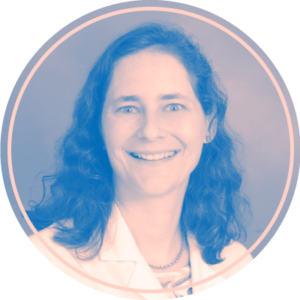
What are your gender pronouns?
She/her/hers
Where are you from?
I grew up in northern New Jersey, a suburb of The Big Apple. I’ve lived on Long Island for the past nine years.
What’s your specialty or area of expertise?
I am an Adolescent Medicine physician and a licensed pediatrician. I provide primary care services for patients who are between 12-26 years old, such as routine physical exams, sports physicals, routine vaccinations, and sick visits. Additionally, I provide subspecialty care for adolescent and young adult patients including reproductive health services, managing menstrual concerns, diagnosis and treatment of mental health issues like depression, anxiety and ADHD, and eating disorder management. I also specialize in providing comprehensive medical care for LGBTQIA adolescents and young adults and HIV Pre-Exposure Prophylaxis (PrEP) and HIV Post-Exposure Prophylaxis (PEP). I collaborate with other providers as part of a multidisciplinary team to provide comprehensive care to adolescents and young adults with chronic illnesses like HIV and Diabetes Mellitus.
What first inspired you to become a doctor?
I’ve known I wanted to be a pediatrician since I was eight years old. I remember visiting a family member in the hospital when I was in high school and having such curiosity walking down the hall, wanting to know what was wrong with each patient and how doctors were going to make each patient better. At that point, I knew I wanted to be one of those physicians who could understand illness and make people feel better. I also recall as an adolescent, thinking that my pediatrician was very, very smart but had no idea how to talk to me, a teenage girl. He directed all of his questions to my mother and rarely spoke directly to me. When I learned about the field of Adolescent Medicine in my pediatric residency, I realized that I actually liked talking to adolescent patients, while many of my peers tried to avoid them, preferring to work with babies and young children instead. That’s when I decided that I wanted to specialize in Adolescent Medicine, spending my days working with adolescents and teaching medical students and residents how to provide adolescent-friendly medical care.
What story about one of your patients most sticks with you?
About two years ago, I met a 19-year-old patient. She came to my office just a few days after hearing that she had contracted HIV. The name on the medical record was Nathan (name changed for privacy), but the nurse had informed that this patient prefers to be called Natasha (also changed for privacy).
I walked into the room to see a very scared and nervous patient, but she seemed to relax a little bit after I used her chosen name and asked her which pronouns she preferred to use.
Natasha said she had been afraid to seek regular health care since she did not want to be judged or lectured. She also said I was the first physician to address her using her chosen name and make her feel comfortable to discuss her sexual practices.
I have been seeing Natasha regularly now for two years and work with a multidisciplinary team to keep her HIV viral load undetectable, improve her mental health, and reduce risky behaviors. She also has started feminizing hormones to further her gender transition.
I am very passionate that all patients deserve equal and appropriate health care, regardless of their race, ethnicity, sexual orientation, or gender identity. I have advocated for patients like Natasha even in my own medical institution and am proud to say that Natasha has become the first patient in our institution to have her electronic medical record updated to incorporate her birth sex and her gender identity!
What current policy issue especially motivates you to be an advocate?
There are so many areas of policy that are important to me, especially issues that impact adolescents’ ability to get confidential care and those that impact comprehensive reproductive care for all patients. On my first advocacy trip to Albany, NY as a fellow, I learned the importance for physicians to be active advocates on behalf of their patients. Since I was only a fellow, I expected to spend the day observing lobbyists and learning how to talk to representatives. I quickly learned that even as a trainee, I knew more about the medical issues that were being discussed than the lobbyists or the legislators since I dealt with patients affected by these issues on a daily basis. It shocked me that non-physicians were debating aspects of a bill that would impact how I provide medical care, even though none of the other people in that room had gone to medical school! That compelled me to speak up then and to continue to advocate on behalf of my patients and train pediatric residents to become effective advocates.
Who is your social justice hero?
One of my social justice heroes is Dr. Angela Diaz, an Adolescent Medicine provider and the Director of the Mount Sinai Adolescent Health Center in New York City who totally exemplifies the American Dream. I had the opportunity to collaborate with Dr. Diaz during my fellowship and watched her in action as she advocated for adolescent rights. Dr. Diaz was a young immigrant from the Dominican Republic and grew up in New York City with limited access to health care. She struggled with depression in high school and decided to drop out of school. Dr. Diaz forced herself to seek medical help and ultimately re-enrolled and graduated from high school. Dr. Diaz went on to earn her medical and PhD degree and is now the director of the largest adolescent-specific health center in the United States, the very same health center that treated and inspired her when she was 17 years old.


